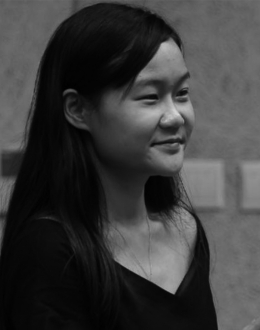
Landscape

CHEN Zheng
Associate Professor
zhengchen@tongji.edu.cn
Room710, Building C, CAUP, Tongji Univ.
Research Profile
Dr. Zheng Chen’s current research work lies in environmental cognition and its application to enhancing wellbeing via built environmental design. She conducted research studies to evaluate in-situ environmental emotional responses and well-being, by measuring physiological responses via wearable bio-sensors, including EEG(Electroencephalography), skin conductance, EKG(Electrocardiography), EMG(Electromyography) as well as other biosensors. Besides evaluation, she also explores integrating those real-time bio-signals via HCI (human-computer interface). She had two research projects funded by Chinese National Science Foundation, and another two funded by government.
Current Courses
2023F-Present, Human-Centered Green Infrastructure Analysis (graduate, in Chinese/English, Tongji)
2013F-Present, Landscape Planning Studio I (undergrad, in Chinese, Tongji)
2018F-Present, Research Methods (grad, in Chinese, Tongji)
Grants
“Precise Repairing of Urban Street Landscape via In-situ Environmental Experience Computing” (51878461), Principal Investigator, Natural Science Foundation of China, 01/2019-12/2022, RMB 600,000.
An evidence-based model of in situ environmental perception and its application to visual resource analysis, management and design(51408429), Principal Investigator, Natural Science Foundation of China, 01/2015-12/2017, RMB 250,000.
In-situ environment perception in urban areas using electroencephalography (14PJC099), Principal Investigator, Shanghai Pujiang Program, Shanghai Municipal Science & Technology Commission, 09/2014 - 09/2016, RMB 100,000.
Selected Publications
Yu, X., Chen, Z., Liu, F., & Zhu, H. (2023). How urban metro networks grow: From a complex network perspective. Tunnelling and Underground Space Technology, 131, 104841.
Yu, Y., Chen, Z., Bu, J., & Zhang, Q. (2020). Do Stairs Inhibit Seniors Who Live on Upper Floors From Going Out? HERD: Health Environments Research & Design Journal, 13(4), 128-143. doi:10.1177/1937586720936588
Chen, Z., He, Y., & Yu, Y. (2020). Attention restoration during environmental exposure via alpha-theta oscillations and synchronization. Journal of environmental psychology, 68, 101406. doi:https://doi.org/10.1016/j.jenvp.2020.101406
Chen, Z., Schulz, S., Qiu, M., Yang, W., He, X., Wang, Z., & Yang, L. (2018). Assessing affective experience of in-situ environmental walk via wearable biosensors for evidence-based design. Cognitive Systems Research, 52(2018), 970-977. doi:https://doi.org/10/1016/j.cogsys.2018.09.003
Chen, Z., Miller, P. A., Clements, T. L., & Kim, M. (2017). Mapping Research in Landscape Architecture: Balancing Supply of Academic Knowledge and Demand of Professional Practice. Eurasia Journal of Mathematics, Science and Technology Education, 13(7), 3653-3673. doi:10.12973/eurasia.2017.00751a
Chen, Z., He, Y., & Yu, Y. (2016). Enhanced functional connectivity properties of human brains during in-situ nature experience. PeerJ, 4, e2210. doi:10.7717/peerj.2210
Chen, Z., He, Y., & Yu, Y. (2015). Natural environment promotes deeper brain functional connectivity than built environment? BMC Neuroscience, 16(Suppl 1), P294. Retrieved from http://www.biomedcentral.com/1471-2202/16/S1/P294
 ABOUT US
ABOUT US




